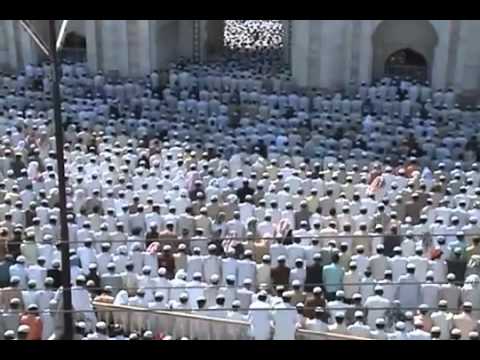 New Delhi, Sep 11: India's leading Islamic seminary Darul Uloom has issued a fatwa, saying "photography is unlawful and a sin", even though Saudi Arabia allows photographers inside the holy city of Mecca and live telecast of 'namaz' is beamed on Islamic channels across the world.
New Delhi, Sep 11: India's leading Islamic seminary Darul Uloom has issued a fatwa, saying "photography is unlawful and a sin", even though Saudi Arabia allows photographers inside the holy city of Mecca and live telecast of 'namaz' is beamed on Islamic channels across the world.
Mufti Abdul Qasim Nomani, Mohtamim (Vice-Chancellor) of Darul Uloom Deoband, told PTI on phone, "Photography is un-Islamic. Muslims are not allowed to get their photos clicked unless it is for an identity card or for making a passport."
He said Islam does not permit video-taping of marriages or clicking of pictures to save as mementos for future generations.
When pointed out that Saudi Arabia, which follows the Wahabi school that aspires to return to the earliest fundamental sources of Islam, allows photography in the holiest of Islamic cities Mecca and beams live coverage through the year, Nomani said, "Let them do it. We do not allow it. Not everything they do is correct."
Nomani agreed with the fatwa -- a religious edict issued by Darul Ifta in Deoband -- regarding a query from an engineering graduate saying he was passionate about photography and wanted to pursue it as a career.
"Photography is unlawful and sin. Hadith (recorded Islamic tradition) warns sternly against it. Do not do this course. You should search any suitable job based on your engineering course," reads the fatwa posted on the school's website.
All India Muslim Law Personal Board member Mufti Abul Irfan Qadri Razzaqi also agreed with Nomani's fatwa.
"Islam forbids photographing of humans and animals. Whoever does that will be answerable to God," Razzaqi said.
When reminded that Saudis allow it, he said, "Just because they are richer than us doesn't mean they are also correct. If they are allowing photography they will be answerable on the Day of Judgement in the court of God."
A similar fatwa was issued when a television reporter asked if his "facing the video camera" is against Islam.
"You are right, it is prohibited in Islam to photograph and to let others photograph you. Therefore, you should seek forgiveness from Allah for the same and choose for you a work which is free from such prohibited acts.
"A work which involves unlawful and haram things is obviously unlawful. If the work includes oral or written reporting as well then the entire income will not be labelled as haram," reads another fatwa.
However, Mufti Saif Abbas, president of the Shia Chand Committee, said his sect allows photography and television viewing. "Islamic channels such as Peace TV, QTV, ARY and others beam live coverage of namaz, Hajj...are they all wrong? I have argued with my Sunni colleagues that there is nothing wrong with photography," he said.






Comments
Add new comment